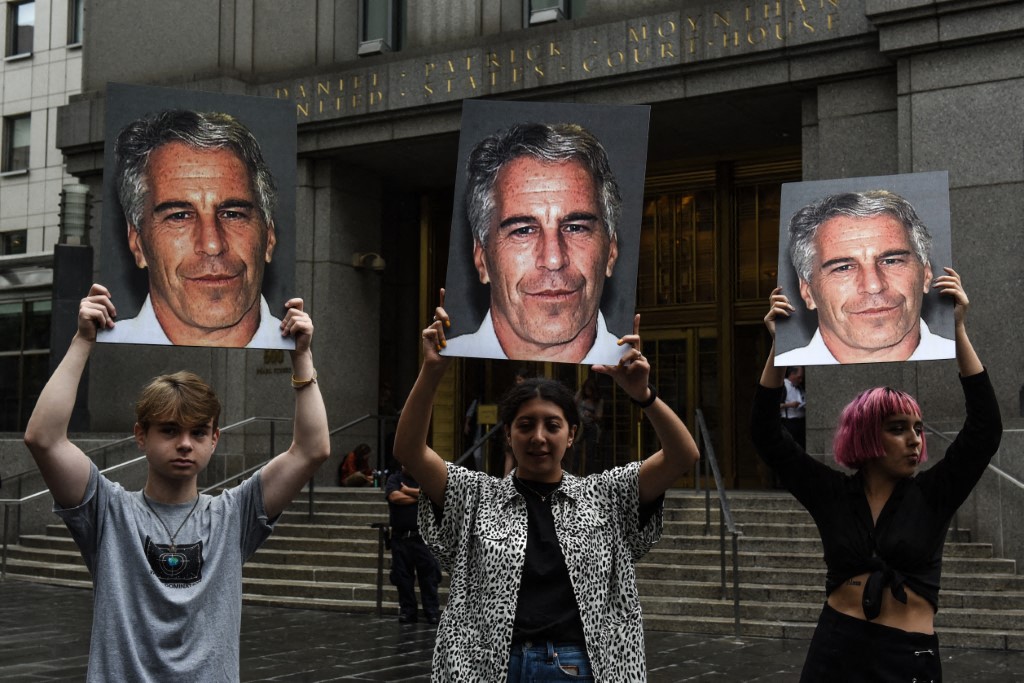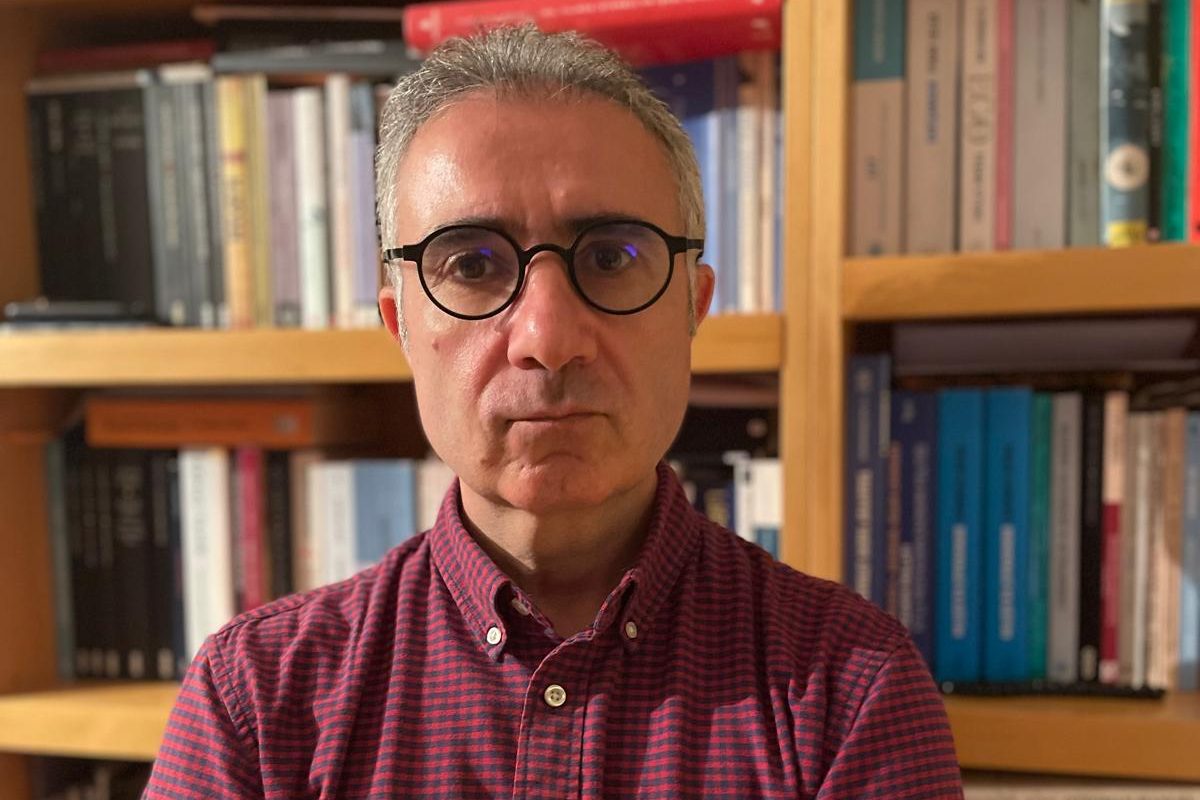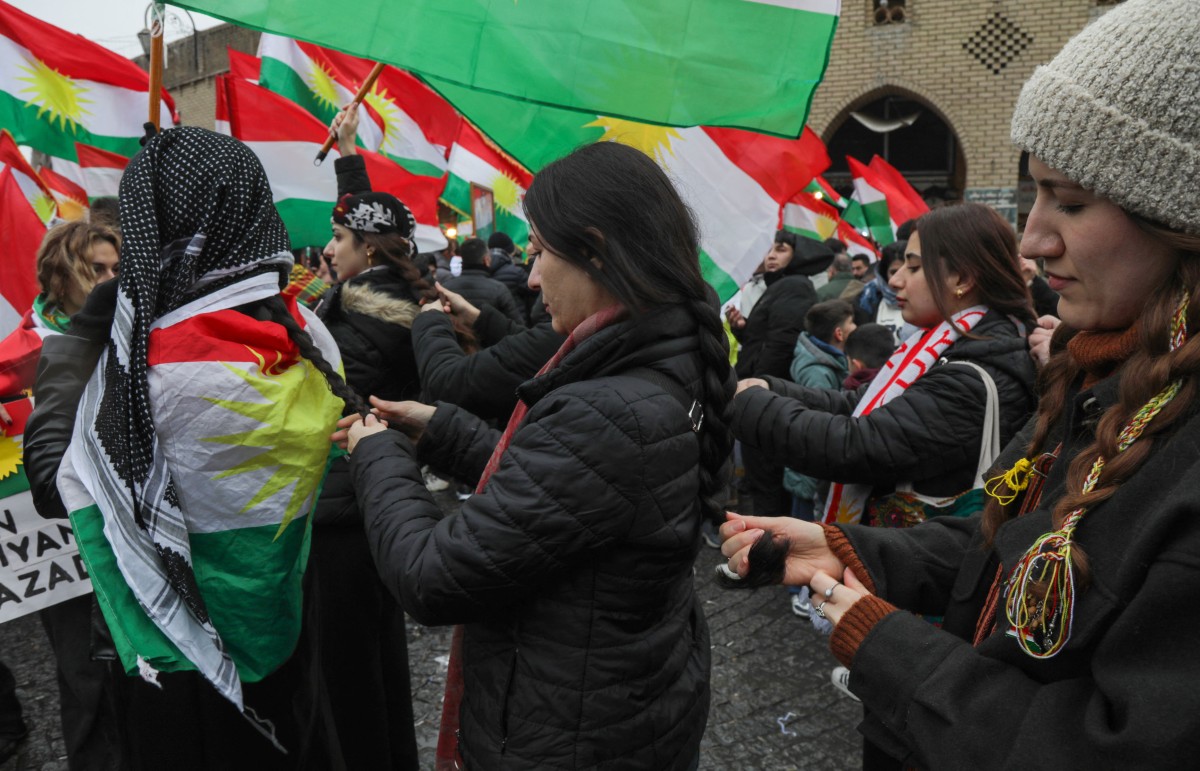The PKK is taking the next step toward peace
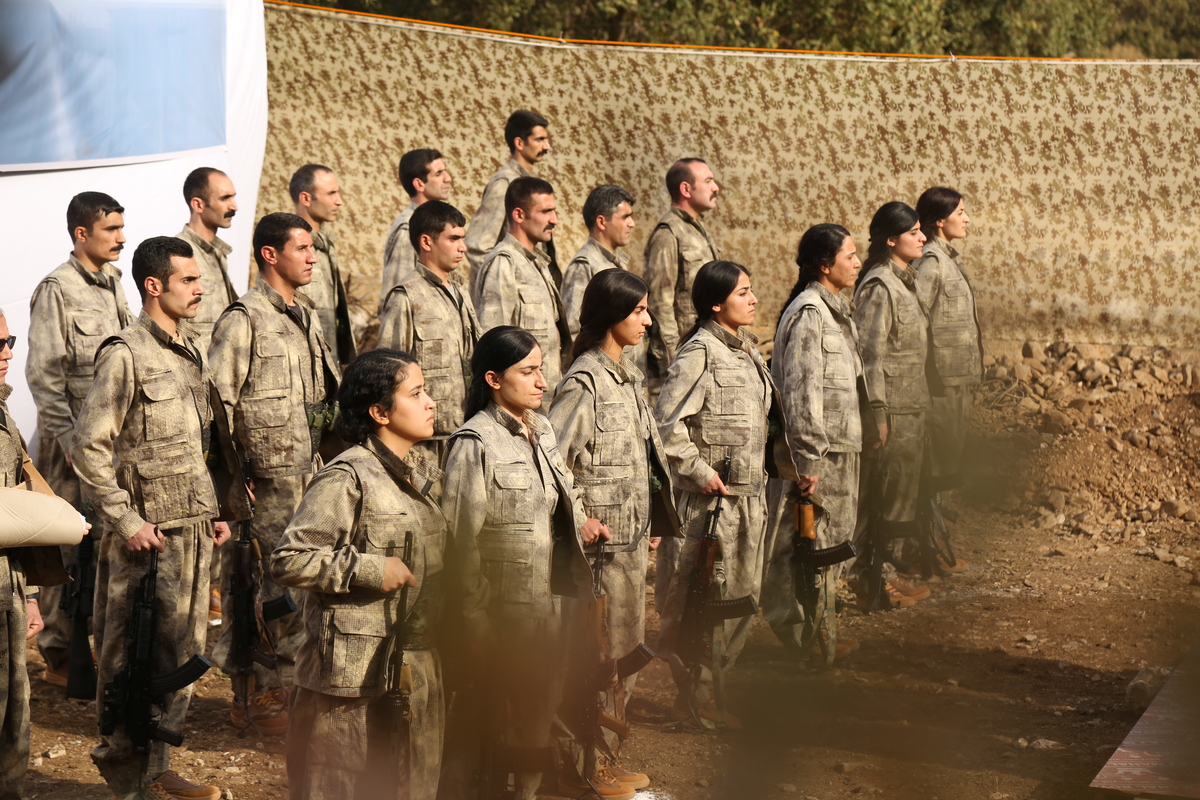
On October 26, the Kurdistan Workers’ Party, or PKK, announced in a ceremony held in the Qandil Mountains that it had begun withdrawing its guerrilla forces from Turkey to the so-called Medya Defense Zones, remote areas under PKK control along the tri-border region of Turkey, Iraq, and Iran.
Following the ceremony, in an exclusive interview with The Amargi, Zagros Hiwa, spokesperson of the Kurdistan Communities Union (KCK) – an umbrella organization that includes the PKK–. who reiterated the group’s commitment to the peace process, and said that through “democratic integration,” former PKK members can be part of Turkey’s political processes.
At a press conference held in the Qandil Mountains, Sabri Ok, a member of the KCK Executive Council, read the statement in Turkish. Vejîn Dêrsim, a commander of the Free Women’s Units (YJA Star) in the Serhat Province, delivered the Kurdish version. The speakers described the move as part of a transition from armed struggle to political engagement, marking what they referred to as the second phase of what the now-dissolved PKK calls “Peace and Democratic Society Process” and which Turkey calls “a terror-free Turkey.”
This decision follows the PKK’s 12th Congress in May 2025, during which the group declared its dissolution and ended its military-focused strategy, aligning with Abdullah Öcalan’s 27 February call for a transition to “peaceful and democratic means.” To signal that the PKK had completely dissolved, the statement was read under “the leadership of the Kurdish Freedom Movement” rather than the PKK.
A unilateral ceasefire was declared on 1 March, and in July, a symbolic disarmament ceremony was held under the supervision of the KCK’s co-chair Besê Hozat, with a group of 35 PKK guerrillas burning their weapons in Jasana Cave, not far from Silêmanî (Sulaymaniyah).
At the October statement, the representatives said that the withdrawal aims to reduce the risk of clashes and create conditions for political dialogue. “We are committed to the resolutions of the 12th Congress and are determined to implement them,” the statement read. It added that “a Transitional Law unique to the case of the PKK should be established” to enable participation in democratic politics. The group urged Ankara to “adopt the necessary laws for freedom and democratic integration without delay.”
After four decades of armed conflict, the withdrawal marks a potentially significant moment to settle the conflict. However, its political impact hinges on Ankara’s response. The Turkish government has reiterated its demand that all groups that it sees as PKK-linked in Iraq and Syria disband, which remains a potential obtsacle between the two sides. However, on the other side, following talks with the interim-Syrian Government, the Syrian Democratic Forces (SDF) submitted a list of its commanders to integrate with the new Syrian Army, a move that could possibly be welcomed by Turkey.
Speaking to The Amargi in the Qandil Mountains, KCK Spokesperson Zagros Hiwa stressed that “the peace process has mainly been driven by unilateral steps from the Kurdish Freedom Movement.” He adds that the absence of reciprocal steps by Ankara shows that “Turkey’s policy of denial” remains unchanged, even as the Kurdish movement repositions itself to prevent further conflict.
“Until now, [the Turkish state ] has not taken any concrete, practical steps for the process to continue.”
“Until now, [the Turkish state ] has not taken any concrete, practical steps for the process to continue,” said Hiwa, adding that Öcalan’s isolation continues, while the necessary conditions to continue the process have not been met. Nevertheless, the Kurdish Freedom Movement intends to “set new grounds for the process to move forward”.Their withdrawal is meant to “prevent possible provocations” and “clashes with the Turkish army.”
However, Hiwa expressed that there has been “no concrete change in mentality” on the Turkish side. He highlighted the refusal to allow Kurdish mothers to speak their own language in parliamentary sessions and the ongoing threats against Rojava as examples of persistent anti-Kurdish policies. He criticized the Turkish side for offering only rhetoric about brotherhood among Arabs, Kurds, and Turks, rather than making genuine changes to their media language.
Additionally, Hiwa criticized the National Solidarity, Brotherhood, and Democracy Commission in the Turkish parliament for refusing to engage with Öcalan. “The person who initiated the process is Leader Apo. He ended the PKK’s military struggle strategy and enabled the organization to burn its weapons. How can the parliamentary commission ignore such a fact?” Hiwa said. He also condemned the continuation of cross-border military operations.
“You cannot wage a struggle without hope. From now on, our struggle continues. Our method of struggle has changed. Our strategy has changed. But the struggle is not over”
Despite these challenges, Hiwa remained hopeful for the future. “You cannot wage a struggle without hope. From now on, our struggle continues. Our method of struggle has changed. Our strategy has changed. But the struggle is not over,” he said. Hiwa claimed that the movement will take “unilateral steps to encourage the other side to take practical steps, at least to enact its own law” and stop their “operations against Kurdish democratic politics.”
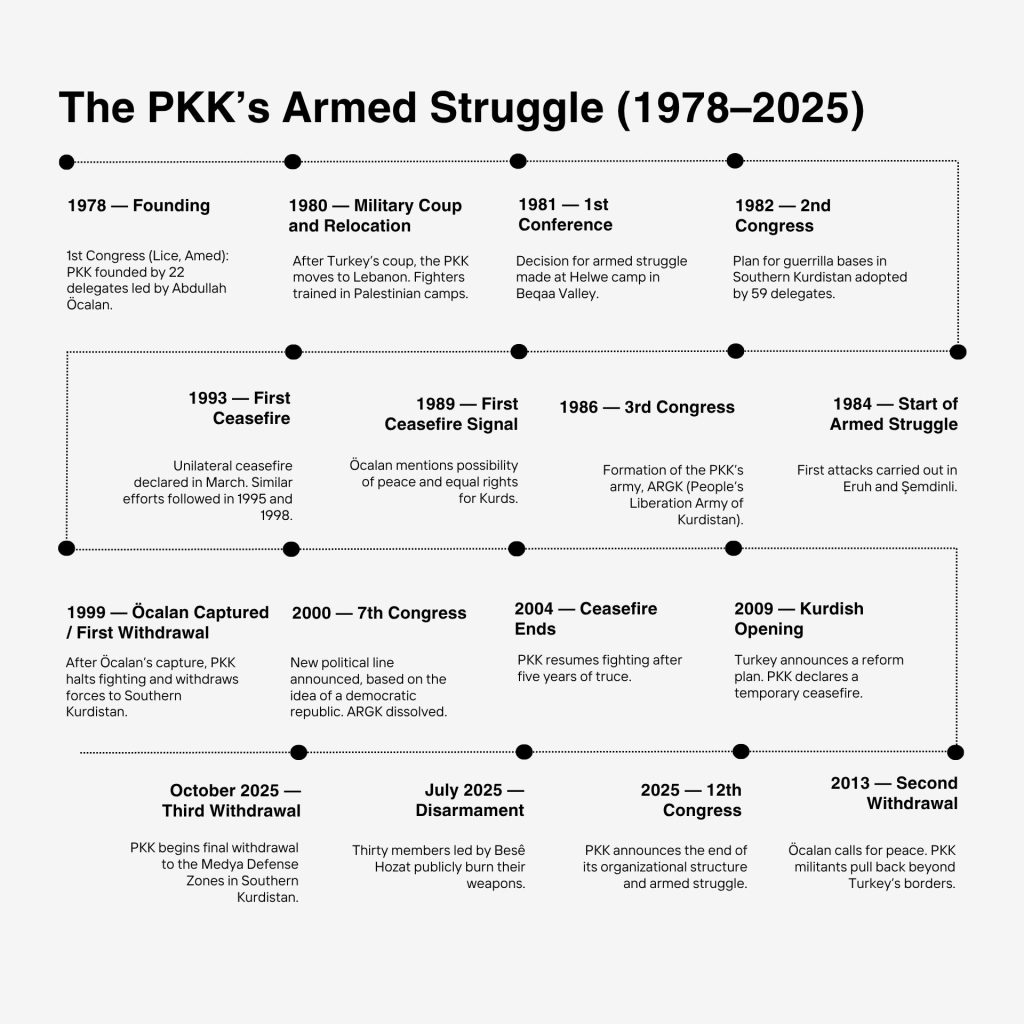
The KCK spokesperson told The Amargi that the first and foremost condition is Öcalan’s freedom so that he can “lead the process” and “represent the Kurdish side in the negotiations.” In his words: “The PKK has dissolved itself. So, what will these people do in the future? The Turkish parliament should enact laws for democratic integration and freedom.”
Such a move would allow those who have been oppressed by the government to integrate into Turkish politics. However, according to Hiwa, a new constitution must guarantee that Kurds are not “disenfranchised”; it must be rewritten to include the Kurds instead of alienating them.
Hiwa further stressed that the Turkish army’s invasion of large areas in Iraq and Syria, as well as its extension of military bases, undermines any commitment to peace. “If they are sincere about peace, they should withdraw from those areas.”
For now, the withdrawal represents a cautious attempt to transition one of the region’s most entrenched conflicts from the battlefield to the political sphere—a process that will test both sides’ willingness to sustain dialogue.
To view the full interview, you can go to this YouTube link.
To read the full interview, click here.
Justus Johannsen
Justus Johannsen is a German journalist and a member of the editorial board of The Amargi. His work focuses on the Middle East, with a particular interest in Syria, Rojava, and Turkey — regions he has followed closely for several years.

